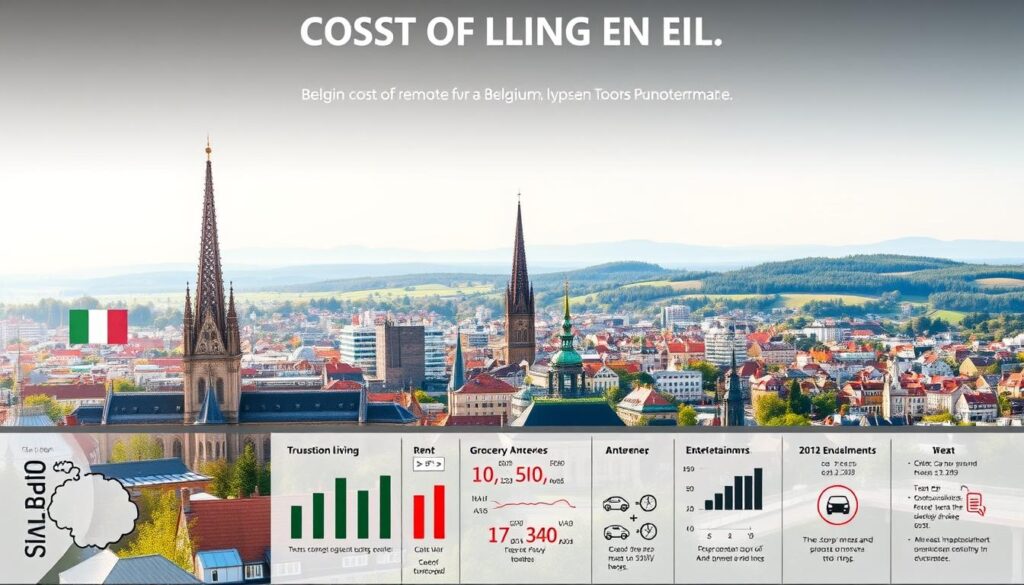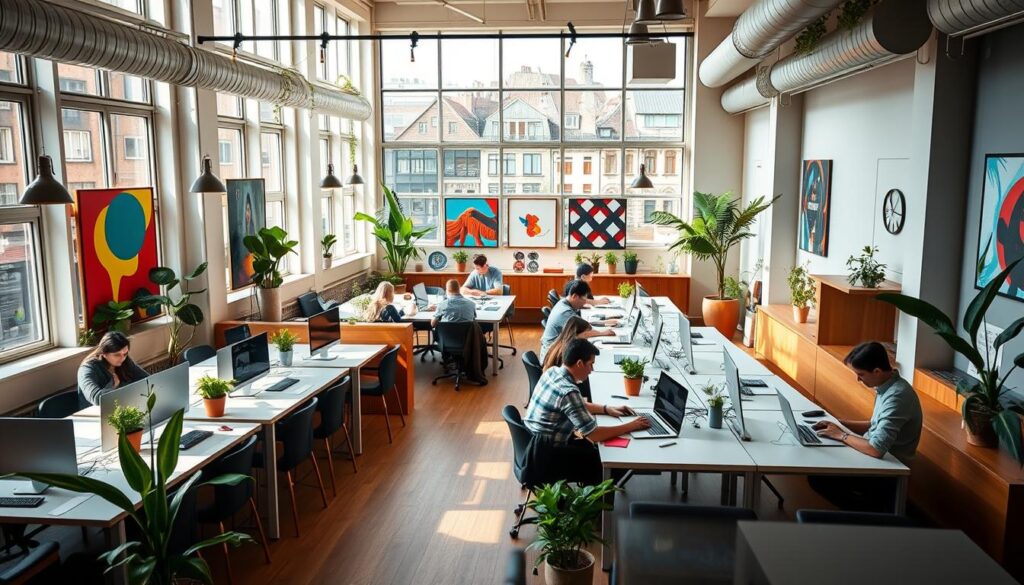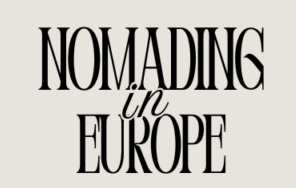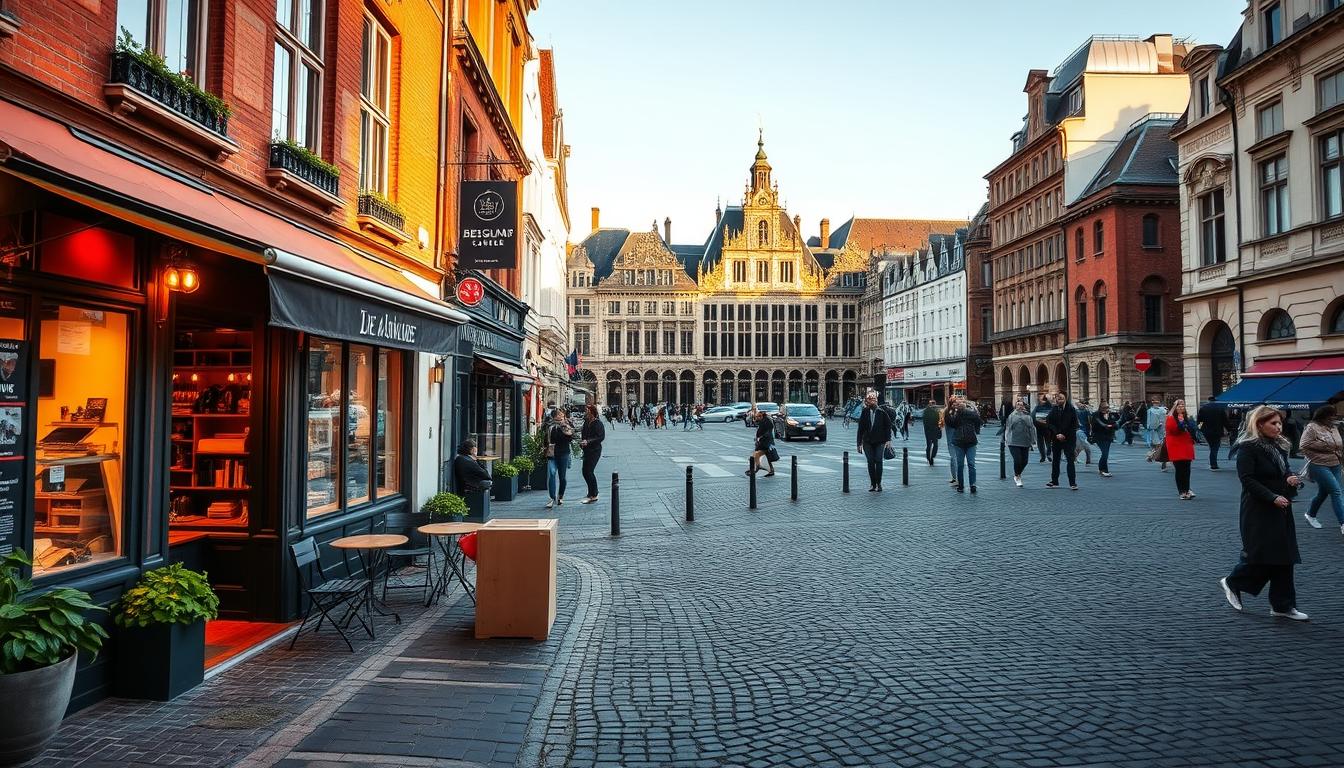Imagine finishing a video call in Brussels and then hopping on a train. You could be in Amsterdam or Paris in just two hours. For remote workers, Belgium’s central location is a big plus. It offers a mix of modern work tools and old-world charm.
But is Belgium the right choice? This guide looks into whether its connectivity, affordability, and culture make it ideal for remote professionals.
Contents
- 1 Understanding Belgium as a Digital Nomad Destination
- 2 Belgium Digital Nomad Visa: Requirements and Application Process
- 3 Cost of Living in Belgium for Remote Workers
- 4 Best Belgian Cities for Digital Nomads
- 5 Coworking Spaces and Digital Nomad Communities
- 6 Navigating Day-to-Day Life in Belgium as a Remote Worker
- 7 Best Activities in Belgium for Digital Nomad Downtime
- 8 Conclusion: Is Belgium Right for Your Digital Nomad Journey?
Key Takeaways
- Belgium’s central location offers easy access to major European cities.
- Fast internet and modern infrastructure support remote work needs.
- Multilingual society eases communication for international workers.
- Cities like Brussels and Ghent provide affordable living options.
- Cultural richness and vibrant communities enhance the remote work experience.
Understanding Belgium as a Digital Nomad Destination
Belgium is a top pick for remote workers. It has fast internet and a culture that welcomes digital nomads. Cities like Brussels and Antwerp offer a mix of modern tools and a friendly vibe. Let’s dive into what makes this place great for finding a productive workspace.
The Belgian Digital Landscape at a Glance
Belgium is a leading digital hub in Europe. It’s home to EU agencies and tech startups. Cities like Brussels and Antwerp have the infrastructure remote workers need.
| City | Download Speed (Mbps) | Upload Speed (Mbps) | Coverage |
|---|---|---|---|
| Brussels | 110 | 45 | 99% |
| Antwerp | 105 | 42 | 98% |
| Ghent | 98 | 40 | 97% |
Data from Speedtest.net (Q3 2023).
Internet Speed and Connectivity
- 5G networks cover major cities and will reach rural areas by 2024.
- Public Wi-Fi is available in cafes, libraries, and co-working spaces (like Brussels Digital Hub).
- Mobile plans from Proximus start at €20/month for 50GB.
Cultural Factors That Impact Remote Workers
Belgium is known for its multilingual society (Dutch, French, English). This helps break language barriers. After the pandemic, 68% of companies now offer hybrid work options.
The Brussels digital nomad guide shows how local businesses support flexible work. This balance of efficiency and a relaxed social pace makes for a great work environment.
Belgium Digital Nomad Visa: Requirements and Application Process
Belgium doesn’t have a specific Belgium digital nomad visa. But, remote workers can get visas like the long-term stay visa, professional card, or self-employed permit. Each visa has its own rules based on your work and where you want to live.
EU citizens can easily enter Belgium but must register with local authorities within three months. Non-EU applicants need a visa application form, proof of enough money (at least €2,000/month), and health insurance. You’ll also need to submit documents like your passport, employment contract, or business plan, all apostilled.
- Long-term stay visa: You need a valid job offer from a Belgian employer.
- Self-employed visa: Freelancers need a business plan and proof of €12,000 startup capital.
- Professional card: For high-skilled workers with specialized qualifications.
It takes 2–4 months to process your application. Fees range from €70 for short-term visas to up to €300 for long-term. Check Migra.be for official forms and updates. Living in Belgium as a remote worker also means you’ll need to declare taxes if you stay over three months and get health insurance.
Learn about residency rules to avoid any issues. Choose the right visa based on your work and budget. Belgium’s visa system is clear, so plan well using official resources for a smooth entry.
Cost of Living in Belgium for Remote Workers

Thinking about living in Belgium as a remote worker? Here are some important numbers from Numbeo and Expatistan. Monthly costs differ by city, but you can find affordable living with careful planning.
Monthly Budget Breakdown
- Budget lifestyle: $1,200–$1,600/month (shared housing, local groceries)
- Moderate lifestyle: $1,800–$2,400/month (private apartment, occasional dining out)
- Premium lifestyle: $3,000+/month (luxury housing, frequent entertainment)
Accommodation Costs Across Major Cities
In Brussels, a 1-bedroom apartment costs $1,100–$1,800/month. Antwerp and Ghent have similar prices. Bruges is a bit cheaper, averaging $900–$1,300. You can also find short-term rentals on Airbnb or in co-living spaces like Roam.
Food and Transportation Expenses
Groceries cost $400–$600/month. A coffee is $3.50, and a lunch combo is $8–$12. Public transport passes start at $60/month, making it easy to get around.
Healthcare and Insurance Considerations
Belgium’s public healthcare is top-notch but needs EU health insurance. Non-EU remote workers must buy private insurance ($80–$150/month from AXA). Dental and vision care cost $50–$100/month.
Belgium’s cost of living is in the middle range, but the quality of life is high. It has fast internet and cultural attractions. Use apps like HappyOrNot to track your spending and save on long-term leases.
Best Belgian Cities for Digital Nomads
Belgium is a great place for digital nomads, with cities that are both lively and historic. Each city has its own perks for remote work. Let’s look at four top spots and what they offer.
Brussels: The Administrative Heart
Brussels is a global center, thanks to EU institutions and its diverse culture. Areas like Ixelles and Saint-Gilles have cool cafés and coworking spots. Use Nomad List to compare rent prices.
| Category | Brussels | Antwerp | Ghent | Bruges |
|---|---|---|---|---|
| Average internet speed (Mbps) | 100 | 95 | 85 | 70 |
| 1-bedroom rent ($/month) | $1,200 | $950 | $800 | $1,100 |
| Coworking spaces | 50+ | 20 | 15 | 5 |
| Public transport cost ($/week) | $25 | $20 | $18 | $15 |
Antwerp: Creative and Cultural Hub
Antwerp is famous for fashion and its Noord district. It’s cheaper than Brussels, and the central station has great Wi-Fi. Check Numbeo for cost comparisons.
Ghent: Student-Friendly Atmosphere
Ghent is lively and affordable, perfect for budget travelers. It has events at universities and coworking spots like Hub Ghent. Rent is about $800 a month, with fast internet.
Bruges: Historic Charm
Bruges is known for its medieval beauty and tourism. It’s great for short stays but might not be ideal for long-term nomads.
Coworking Spaces and Digital Nomad Communities
Belgium is a great place for digital nomads, with many coworking spaces and active communities. Start by checking out the Brussels digital nomad guide for the best spots and events. Places like Brussels’ Fosbury & Sons and Silversquare offer fast internet, event areas, and flexible membership options.

- Brussels: Fosbury & Sons (24/7 access), Silversquare (startup-focused), Transforma BXL (central location)
- Antwerp: The Working Place and The Office offer modern setups with monthly rates starting at €200.
- Ghent: WorkGhent and Basecamp provide affordable memberships for short-term stays.
- Bruges: Smaller hubs like Bruges Coworking blend historic charm with reliable Wi-Fi and quiet zones.
Join groups like the Brussels Digital Nomads Facebook group or meetups at TechHub Antwerp. Local events like Nomad Days Bruges offer networking and cultural tours. Check out Nomad List forums for reviews and pricing info. Many spaces have perks like coffee bars, printers, and workshops. Working in these spaces helps you stay productive and connect with locals.
Living in Belgium as a remote worker requires learning about banking and language. First, decide between traditional banks or digital ones. Here’s a look at Belgian banking options:
| Bank Type | Examples | Requirements | Digital Features |
|---|---|---|---|
| Traditional Banks | BNP Paribas Fortis, KBC | Passport, proof of address | Limited online services |
| Digital Banks | N26, Revolut | Online ID verification | Full mobile app access |
Adapting to the language is crucial. Flanders speaks Dutch, Wallonia French, and Brussels has both. English is common in business. Use Duolingo or local classes to learn.
Belgium offers a great work-life balance. People work 35 hours a week with 20+ vacation days. Enjoy cafes and festivals like the Ghent Festival. For daily needs, visit Delhaize for groceries and Equinox for fitness.
For taxes, talk to Belgium’s tax authority. Mobile plans from Proximus or Orange Belgium have flexible data. To save money, compare apartments on Immoweb and use public transport passes.
Best Activities in Belgium for Digital Nomad Downtime
Belgium is small, making it easy to explore without long trips. It offers many ways for digital nomads to relax. You can enjoy the coast, dive into culture, and more.
Weekend trips in Belgium are perfect for a break from city life. The coast, like Ostend and Knokke, has beach cafes and seafood for €15. The Ardennes region, a 2-hour drive from Brussels, has trails and spas. A day pass for public transport costs about €6.
Weekend Getaways Within Belgium
- Ostend: 1.5-hour train ride from Brussels; historic lighthouse tours and summer jazz festivals.
- Ardennes: Forest hikes in Eupen or winter skiing in La Roche-en-Ardenne.
- Bruges: Bike rentals from €10/day to explore medieval canals and chocolate workshops.
Cultural Experiences and Events
Belgium’s cultural scene is lively all year. Don’t miss Tomorrowland (€150–€300 tickets) in Boom or Ghent’s Beer Festival (free entry, tasting fees apply). Check VisitBelgium.com for details.
| Event | Date | Location | Cost |
|---|---|---|---|
| Tomorrowland | July | Boom | €150–€300 |
| Ghent Festival | April | Ghent | Free! |
| Brussels Beer Weekend | October | Brussels | €30–€50 |
Outdoor Activities and Nature Escapes
Belgium’s 3,500km cycling network is great for outdoor fans. Rent a bike in Brussels for €12/day and explore the Canal du Centre. Hike in the Hoge Kempen National Park or kayak the Meuse River (€25 per person). Use apps like Welovebrussels for guided tours.
Conclusion: Is Belgium Right for Your Digital Nomad Journey?
Belgium is a great spot for digital nomads, blending culture with modern comforts. Its central location makes it easy to explore nearby countries. Cities like Brussels and Antwerp have fast internet and lively coworking spaces.
But, living in cities like Brussels can be pricey. Non-EU residents might also face longer visa waits. Still, Belgium is known for its top-notch infrastructure and quality of life.
If you love history, museums, and speaking different languages, Belgium might be perfect. Websites like Expat Focus and Nomad List help with cost comparisons and community info. Check the Belgian Federal Public Service for visa info to make your move smoother.
Living in Belgium means dealing with rainy winters but enjoying a rich café culture and food scene. Compare it to Portugal’s lower costs or Estonia’s tech scene. Think if Belgium’s mix of city life and European connections fits your remote work dreams. For many, the answer is yes, if it fits your budget and lifestyle.


